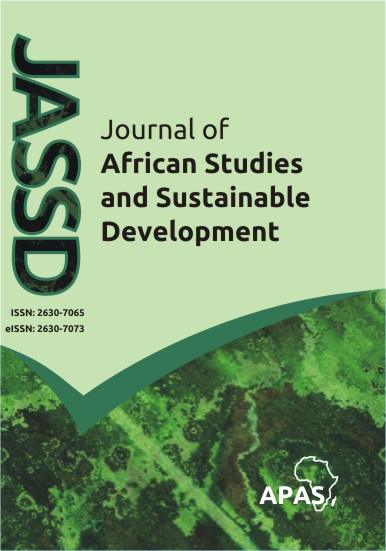 Journal of African Studies and Sustainable Development (JASSD) (Vol. 7 No. 1, 2024)
A PHILOSOPHICAL PERSPECTIVE OF ISAIAH BERLIN'S POSITIVE AND NEGATIVE DIMENSION OF LIBERTY
Journal of African Studies and Sustainable Development (JASSD) (Vol. 7 No. 1, 2024)
A PHILOSOPHICAL PERSPECTIVE OF ISAIAH BERLIN'S POSITIVE AND NEGATIVE DIMENSION OF LIBERTY
ABSTRACT
Man's existence and, in some ways, his nature depend on his ability to exercise his right to liberty. This inalienability was succinctly encapsulated in the Universal Declaration of Human Rights, which was adopted. However, Isaiah Berlin distinguished between positive and negative liberty in his 1958 lectures, which form the core of this work, and offered a full assessment of this essential function of liberty. Isaiah Berlin's beliefs on liberty are subjected to an explanatory approach and a critical analysis in this essay. The results of the study demonstrate how a democratic government's laws and policies define and safeguard an individual's civil liberties. Prerogative orders allow anyone to seek redress when their rights are violated resulting from this. In this way, a media organization assists and counsels those whose rights have been violated on how to pursue the proper legal action and seek redress. All of these actions uphold, defend, and ensure the security of fundamental human rights, which are the methods by which liberty or freedom are eaten. Human liberty shouldn't be mistakenly seen as working against the rule of law, but rather as a supplement to it, according to the text, because a democratic society promotes the welfare of its inhabitants. According to Isaiah Berlin, it would be erroneous to isolate human liberty from law and the constitution in this manner.

